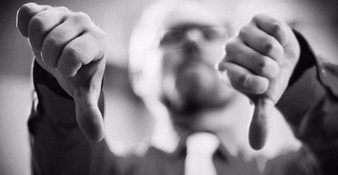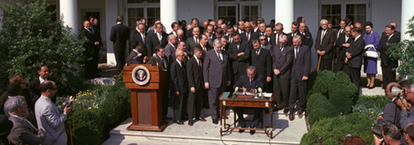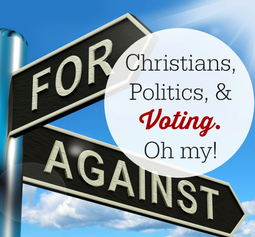 First a sermon illustration to start us off: There is an old illustration of Hell that still speaks and I think it sets up my point from Luke 6:37-49: Hell is like a long banquet table with all sorts of food and delights, but everyone at that table is getting thiner, more gaunt, more haggard from hunger. They are starving with all that food before them. You see, the utensils they were given and had to use were six foot long chopsticks. If they’d only thought unselfishly and fed each other, no one would be starving and all would be enjoying the great banquet. Thus, the Adamic nature of the human-being and why the existence of Hell. Now, the point of the illustration, here, is the audience of Luke’s Gospel, the listeners/readers before the text, that is, those house-churches (associated with Theophilus) with believers sitting around those tables enjoying a meal (aka breaking bread) and lifting that fourth cup of wine at the end of the supper, celebrating together and acknowledging that Jesus is Savior and King. And us, now . . . Still, for now, imagine those tables with former enemies and individuals of clashing social status all confessing Jesus is Lord, a new fellowship of unequals and strangers. Love your enemies and stop judging makes applicable, narrative sense (Luke 6:27, 37). It makes church sense. So, let’s take a look at the text and context, beginning with Luke 6:37-38a: “Judge not, and you will not be judged; condemn not, and you will not be condemned; forgive, and you will be forgiven; give, and it will be given to you” What do we have here? There is an obvious structure that helps us read it properly:
This whole pericope (i.e., set of commands) should be taken as one thing. Yet, still there are questions begged to be asked . . . ➤ Stop judging what? And, what will we be not judged of? ➤ Stop condemning what? And, what will we be not condemned of? ➤ Forgive [others] of what? And, what will we be forgiven of? These are all left open-ended, unanswered by the command and promise. Most supply don’t judge sin in others and sin will not be judged of you . . . forgive others of sin and sin will be forgiven you. We might infer this, but the sentences do not demand or necessarily imply this reading. Now, the last command . . . ➤ But . . . the “give” is already in the context and, thus, can be applied to the whole: “Give to everyone who begs [“borrows” is a far better reading] from you, and from one who takes away your goods do not demand them back” (Luke 6:30); “And if you lend to those from whom you expect to receive, what credit is that to you? Even sinners lend to sinners, to get back the same amount. But love your enemies, and do good, and lend, expecting nothing in return . . .” (vv. 34-35). So, how does this help us with reading and applying this element of the Sermon on the Plain? Pretty much most see the judging and condemning related, as I mentioned, to sin--you know, don’t judge the sins in others (i.e., the specs) before you deal with the sins in you (i.e., the logs/beams). Nothing in the text nor the context warrants this reading. However, something else is within range. Let me suggest: there is a social and cultural association/relationship implied that I believe we can reasonably and appropriately infer. We have the “poor” and the “rich” already referenced in the Beatitudes (vv. 20-26) and there are the references to “enemies” (v. 27b), “those who hate you” (v. 27c), “those who curse you” (v. 28b), “those who abuse you” (v. 28b), “the one who strikes you on the cheek” (v. 29a) and “the one who takes away your cloak” (v. 29b), including “the one who begs from you” (v. 30a) and the “one who takes away from you” (v. 30b), and, especially, there is the patronage giving-lending-for-return (vv. 32-35)–all pointing to social and cultural castes of relationships (very much the poor/rich referents mentioned in the Beatitudes). . . this “giving” et al. idea is drawn into this set of instructions (as already pointed out above), which, based on how the instructions is structured, infers to the whole (all of the commands). Simply: stop judging-stop-condemning-start forgiving-start giving is an extension of “love your enemies . . . do good to those who hate you, which leads to the give/lend expecting nothing in return.” Seriously, this reading actually solves the “poor” and the “rich” referents . . . and supplies how it is the “poor” and the “rich” are now breaking bread together as members of the family of God (around those tables). There is a social and cultural shift amid the new community of God in Christ Jesus around those tables—something both attitudinally (i.e., renewed in mind) and concretely (i.e., a behavior, a lifestyle that is) different, wholly distinctive about this community of Jesus followers. There is something missionally different (and imperative) and something intrinsically different (relationally), even something ontologically unalike the social and cultural milieu (the social location, what makes the empire adhere and maintain, the tiers of human hierarchy) that surrounds the church–these congregations, these tables, these local, neighborhood house-churches are a new creation, unlike anything else now or before. Missionally important because this redemption in Christ is for all people—using Paul’s language in Romans 1, for the elite-Greek, barbarian, Jew, educated and uneducated; using Luke’s (i.e., Jesus’) the poor and the rich, the beggar/borrower and the lender. The message itself (i.e., the gospel), those to whom the message was to be shared (missional importance), and the new relationships at those tables need to match, align. Thus, enemies are also to be loved—out-there among those to whom this gospel would offend and threaten, these cultural enemies. First, all made visible at those tables of gathered Jesus followers (i.e., disciples). And, made outwardly relevant by doing the same among neighbors and in the community. Can’t reach and minister to those whom you are judging and condemning—and I take this to mean socially and culturally judging and condemning (given the narrative context) . . . and as such among the socially and culturally unacceptable* (read both ways—poor to rich, rich to poor) that we are to love, do good, forgive, lend, give) . . . and this gospel is made visible and real around those tables throughout the local house-churches. It seems, given the diversity at those tables and the new rules (if you will) of who can and should be at the table, there would indeed be a need to stop judging/condemning and a whole lot of forgiveness to go around and new patterns of giving to be had. There is no privilege (or patronage) at that table. There is no cursed at that table. Only new relationships in Christ. Given that the Sermon on the Plain ends with the house parable, which speaks to the actual house-church-settings (Paul uses the same in Ephesians 2) and is about discipleship, specially listening to (meaning, obeying) Jesus’ words—those who hear and does them—what I have proposed here seems a good, reasonable (exegetically, narratively, and contextually) faithful reading of the Luke text regarding “judging” et al. And, thus easily and significantly applied to our own church fellowships and witness (mission). *socially and culturally unacceptable are those in castes that are despised, shunned, hated, outside blood-lines, social groups, vocationally loathed, economically reviled, and religiously held in contempt (of which the Christians because of whom they follow and because of this new socially destructive teaching would also find themselves)--this can, nonetheless, be applied (i.e., done) reciprocally from one group/caste to the other and visa versa. Other Sermon on the Plain Wasted Blog thoughts
2 Comments
 The systems (by design, default, and/or from unintended consequences) that are in place that create and sustain the conditions of poverty and our current social structures are near impossible to change. All the political and progressive rhetoric is ill-equipped to actually offer alternatives to the current conditions of poverty. Social boundaries, the ability for mobility (cultural, social, educational, economic, et al.) are mostly set in concrete, near unchangeable. Furthermore, those who have a vested interest in their own place and status (wealth, social, location, power) have no, sincere, vested interest (beyond appearance, mere rhetoric, or progressive voting) in changing the systems now in place. On the other hand, those in the bottom demographics do not have the power, do not live in geographic spaces, nor have the educational skills to make any significant change to the very complex, hierarchical-engendering, boundary rich, mobility disabling systems in place that keep most everybody in their social, economic, and cultural corners (socially, geographically, demographically, educationally, et al.) The spheres of government and of social-service (private and public) do not have the truly vested, self-less interests in making change. The appearance of change, perhaps. The rhetoric of change, perhaps. The political allegiance, perhaps. But not real, systemic changes that would actually release mobility beyond the current “corners.” When will we learn this, O Christian? Yet, as strange, foreign, and impossibly crazy as this sounds, the only space where the good life, flourishing, and even systemic social and cultural change to offer real mobility beyond our current “corners” or even truly be imagined is the gospel-rich church–literally amid local churches scattered throughout communities. Amid local churches where there is no earthly power being sought (even by its leadership), but the love of neighbor (and neighborhoods). Amid local churches where an individual’s humanity is honored, prized, and even died for is a result of believing in the gospel of Jesus Christ. This is the space, amid the early church, in which such change was nurtured and, albeit slowly, happened at the heights of the Roman empire. Where it actually outlived an empire. This is the space in which such changes have happened on small and large scales ever since. Where all lives literally matter; and, when there are lives deemed lesser, treated lesser, those lives matter more, intentionally more. The space where the hierarchies of tiered humanity are deconstructed and the alternative is constructed–that alternative is the kingdom of God, realized in Christ Jesus, and revealed through the church (literally through churches scattered in countless neighborhoods and communities). In the social and governing spheres where it takes power to make systemic changes, it will also take power to maintain such changes. And, this maintaining power is always violent. Furthermore, human nature (in the church we call it our sinful nature) will not, however, relinquish its desire for maintaining one’s advantage over others and freely disinvest its self-interests on behalf of others. So once systemic changes are make (where there is power to make such change), there will always be the powerful and powers that will seek to mark their place and status (i.e., those who make the laws have the power to enforce, by means of violence, their laws); also, there will always be those who obtained newly created social elite status, those who become affluent because of the changes and, then, will seek systems to exercise power (political and social) to maintain the new status quo (their new power). Thus, the boundaries remain and the violence to maintain them continue. This is not the way of the gospel; and, thus, not the nature of the church (read local churches scattered among communities, neighborhoods, regions). This is why the local, gospel-centered, gospel-rich, gospel-dependent, gospel-lived church is the only real space where such social change can truly be experienced. Church matters (#churchmatters).  In 12 days many of us will be voting. I certainly encourage voting for a host of reasons (despite the feeling that nothing really changes anymore after we vote), but this annual trek to the polls teaches something to Christians (i.e., the habit, the liturgy of voting teaches something) and forces Christians and churches to focus on electoral politics as our (i.e., the right, left, conservative, progressive, libertarian, independent)–as our weapon of choice to bring change or to simply protect what we have so it isn't taken away. I don't like this about our politics, that is, for what it does to the church (rather, to churches) and how it makes us as Christians think this is the means we (or God) accomplishes change. Yet, think of the early church. I find, streaming from the pages of the New Testament (I believe), God's means to affect change was to personally (face-to-face, person-to-person) strengthen the weak ties among people at the table, who had never sat for a meal together before . . . strangers and unequals celebrating the Lord’s Supper, the breaking of the bread, a meal, and the lifting of a cup to remember Jesus’ death and resurrection. This table intimacy among differing, adverse, conflicting, socially unacceptable levels and classes of society met as family–where neither slave nor free, neither male nor female, neither clean nor unclean actually meant something huge and not a cliché. This is where change happened. And, it most certainly did. Unheard of change at the deepest societal levels and in the nooks and crannies of both the back alleys and in the palaces. A place where “one in Christ” carried significant social and cultural changing power. Of course I will vote on November 6th. But frankly not much will change. But what I do know that would (that will) bring about change, especially change in my community and for my neighbors, is my church, as we seek to make that table (and what it does to our actual, interactive, on the ground fellowship) a table of unequals and strangers “one in Christ.” Where in the wider community, now a gathered-church, weak ties between people need to exist to changes lives, to prosper communities, and to strengthen neighborhoods. That is how it was done post-pentecost and for the amazing first 150 to 300 years before Caesar put us in a box. Time to get out of that box. Remember we commit treason (or we should be) every time we lift that cup to remember Jesus, to proclaim his death, until he comes again.
|
AuthorChip M. Anderson, advocate for biblical social action; pastor of an urban church plant in the Hill neighborhood of New Haven, CT; husband, father, author, former Greek & NT professor; and, 19 years involved with social action. Archives
February 2024
Categories
All
|
Pages |
More Pages |
|
 RSS Feed
RSS Feed